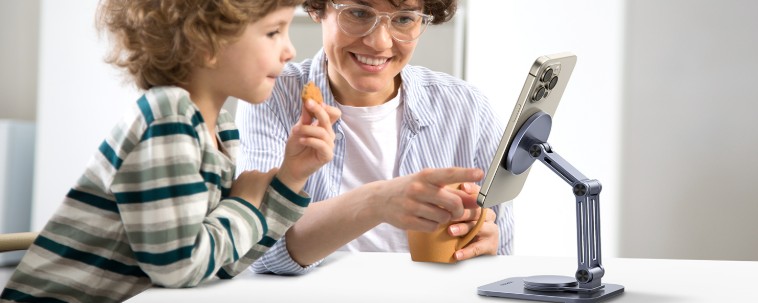
Agriculture is probably the only activity that man has been doing to this day since when it was started some 23,000 years ago. Many improvisations were done to increase the yield, control pests, etc. but still a lot needs to be done to manage the produces so cultivated. According to ICAR- CIPHET (Central Institute of Post-Harvest Engineering & Technology) post-harvest loses for farmers’ amount to Rs 92, 651 crores/annum. This is largely attributed to the lack of sufficient storage infrastructures and good transport facilities.
The loss is more than what the figure shows. It includes loss of manpower days, electricity and various resources that were utilized for producing these commodities that had gone waste. Not to forget the financial and mental hardships the farmers will have to face.
We have heard in news farmers dumping tomatoes, potatoes as a form of protest because of fall in prices. This is not an arrogant action but a helpless move by farmers in despair when they were unable to recover even the production cost during a bumper yield.
Although government is trying to assist farmers by improving road connectivity, Market Intervention Scheme of state governments etc. but not much has been done directly to address the cause of the problem.
Firstly, procurement of perishable items is tricky because losses during transportation are more.
Secondly, shelf-life of perishables are very less so they have to be sold quickly.
Thirdly, cold storage and other infrastructures are inadequate.
Be the change you wish to see in others. – Mahatma Gandhi
Although government is elected to bring solutions to common issues affecting the public, problems won’t resolve on its own if we just criticize the government. Something has to be done, and we should bring in the change for the betterment of our own society. This motivated us to do something more and long term, and not stop with just donating the orphanages. This got manifested in the creation of MOBILE INDUSTRY which we started after witnessing our own native village suffering from similar fate due to surplus production.
After months of research and consultations we came up with an efficient processing unit that will fit into a truck. The machine can process tomatoes and potatoes and pack it too.
The machine is to remain stationed in the city near the villages providing casual employment to daily wage laborers. But when there is a distress call from farmers, the machine is installed on to a truck and sent to the villages. Once we reach the village, we keep the machine close to the farm or at a common place where tomatoes are processed into sauce, thereby improving its shelf-life. Or if it is potatoes, then it’s fried and packed.
By ensuring quality and good-will among restaurants and shopkeepers in and around the town, we usually manage to sell our products entirely to them. Most of the restaurants on the way to these villages too buy from us due to cheaper and fresher products. This way food wastage is averted, farmers are worry-free and it also provides employment to daily laborers. When we take the help of NSS volunteers in the procurement, they also gain experience and learn the ground realities.
However a surge in production doesn’t happen very frequently and we don’t get distress calls often from farmers. Hence there was a request to provide for additional employment generating activities from the daily laborers because the profit from this enterprise in the city was very little.
My priority was to start a business that is sustainable and less polluting. So I looked up for commodities in demand and a pressing issue in the society, something which politicians wouldn’t wish to solve, just to make more politics out of it.
Safe drinking water was the right choice! We gave a competition to Engineering College students to come up with an efficient machine that will convert moisture in air to water. Although we could have bought it or imported the machine we wanted to create awareness about the possibility to young minds. The winner was selected to build a bigger capacity machine that can be powered by solar panels coupled with a battery. For this, we bought solar panels under a government scheme. The water so obtained was made to collect in a big tank, tested for impurities, further purified using UV and mixed with correct proportion of minerals. Initially this water was sold on refill basis but as demand increased we purchased more efficient machines and applied for ISI certification to upgrade it into a packaged drinking water company to supply water cans to houses and create more employments.
The other groups of students who participated in the competition were not left out; their projects were also appreciated and we got their machines installed on top of overhead water tanks and ponds in nearby villages. Other villages were also encouraged to tie up with Engineering Colleges to come up with similar projects to solve their problems.
In the process of making the villages and towns progressive and sustainable, it would be shame if an untidy environment is overlooked. Although Swatch Baharat mission did a lot but not much was done to allocate responsibilities to ensure the initiative becomes a habit. We capitalized the untapped potential of homeless people. I began with giving some money, collecting baskets and broomsticks to homeless people, and asked them to keep the entire street clean. I initially paid them from my pocket but after realizing how better the streets became, the residents and shopkeepers in the street started paying them and offered foods too. So the homeless people began to earn a dignified living and this initiative got spread to other streets in the block. Thus the area became cleaner and we provided a source of income to the homeless.
Give a man a fish and you feed him for a day; teach a man to fish and you feed him for a lifetime. – Maimonides.
During one of our visits to the villages to get feedbacks I got to know a natural way to eliminate mosquitoes which they employed to keep the pond water cleaner. They used mosquito-fish, loach, guppies and other fishes in various water bodies to eat away the mosquito larva and other algal growths.
Fortunately one of the workers in our drinking water-plant had knowledge about fisheries and thus began another enterprise. We had set up a fish farm.
Guppies being fast breeders and fed on mosquito larva, it supplied enough feed for bigger edible and ornamental fishes. It was sustainable and required very little maintenance cost. Mosquito larva are cultured and safely transferred into enclosed tanks where it is fed to small fishes, these themselves become the feed for the larger ones. Some fishes also fed on Azolla. This new enterprise which was started by accident grew to become a very remunerative business supplying fishes across the city and even gets demand from outside the city as well.
In a country like ours where majority of the population are involved in agriculture and its allied activities, it is necessary to address the concerns of people in this sector. This is because agriculture contributes to just around 17% of GDP while almost 60% of population depend on it. This is also the sector where loses are more and contributes to disguised unemployment.
In line with government’s ambition of doubling farmer’s income, focus should be on to increase the yield, building adequate storage infrastructures and more importantly transfer unnecessarily employed people from agriculture to the much needed manufacturing sectors by providing them with vocational training and other skill sets. Together we can make a big difference!
Writer Bio: P GOUTHAM, CHENNAI, A participant of Monthly International Essay Contest, October,2019.


